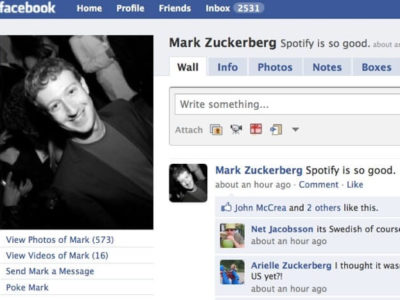STHoldings decided to drop 200 music labels from streaming services like Spotify this month, but what effect will this have? Will these labels return? The Washington Post explained that STHoldings believes these streaming services are discouraging listeners from buying and owning music, as opposed to illegally downloading albums based on a study by the market research company, NPD Group, Inc.
Spotify released a statement on Nov. 18 defending its current and potential revenue from their product, “Artists can – and do – receive very substantial revenues from Spotify, and as Spotify grows, these revenue streams will naturally continue to grow.”
Do the listeners even care about this debate?
Some college students are beginning to start paying for music again. Seth Tompkins, a junior at the University of Louisville, said he uses Spotify Premium, the best Spotify has to offer at only $10 a month. He also uses Spotify at least once a day.
“I see the $10 a month charge as my way of contributing to the success of the artists I listen to financially. I used to be a frequent pirater, however now I find myself going out of my way to listen to as much of my daily music consumption through Spotify as I can,” he said.
Spotify said that their service has generated $150 million for its rights holders in the past three years. Soon, these types of music streaming services might be the only source of income coming from a college audience.
“The music industry can only benefit from partnering with services such as these in my opinion,” Tompkins said. “It is only another avenue through which they can collect royalty revenue.”
Yet, the money is coming from heavy music listeners, and a lot of students only casually use Spotify. Jordan Reeve, a junior at Vanderbilt, said she uses the service to listen to recently released music.
“Most recently, I listened to the new Switchfoot album the day it came out, because I really wanted to listen to it … and I didn't have any money on my iTunes account at the time,” she said. Reeve usually uses the service Mojo, which lets her browse other friends’ iTunes library if they are on a shared Internet network.
Not only can music services let you creep on your friends’ music libraries, but they are now broadcasting your private listening to the world. The Facebook Open Graph (that constantly-updating list of actions all your friends are taking in the upper right-hand corner) highlights comments, likes, wall posts, and now what song you’re currently listening to on Spotify.
Tompkins said he likes being able to comment on a song his friend is listening to, helping him to find new music or share interests. “For the most part I enjoy the Facebook Open Graph Spotify integration as it seems to do a good job of providing the opportunity of starting conversation without being too much of a burden on my friends news feeds,” he said.
Blogger Robert Scoble said that the underlying agenda for the new share-every-detail-of-your-life trend is to find out how to bring Facebook users new media. “When I clicked “like” on the San Francisco 49ers Facebook Page, all of a sudden I started seeing news items about the 49ers,” he said. “The more Zuckerberg knows about you, the more media he will be able to bring you. This is why I say Facebook’s real strategy is to know everything about everything.”
The proliferation of Facebook into every aspect of our lives is commonplace to anyone in the digital age. Most students just care about what their friends see.
“I feel that if any person were to treat me differently based upon the music that I listen too then I typically wouldn't care what such a person thought to begin with,” Tompkins said.
“I'm not a big fan of having everyone know what I'm listening to. Sometimes I'll try to exit it off my profile because of that,” Reeve said.
Photo by forbes.com



















